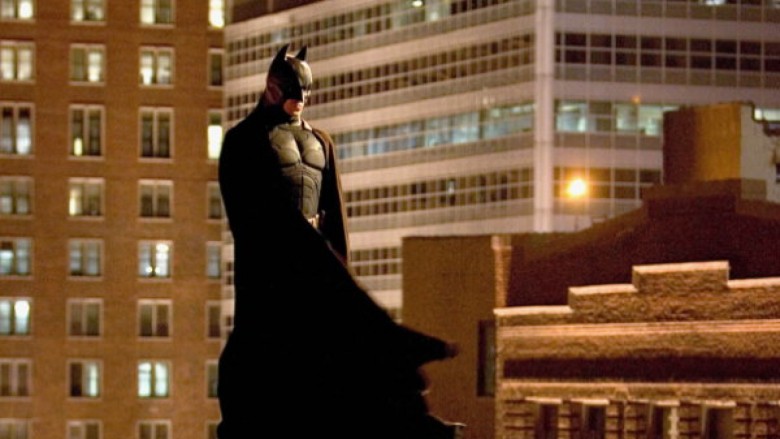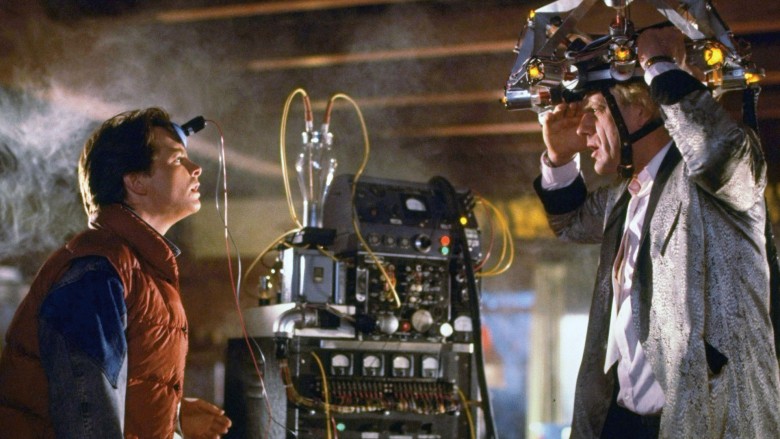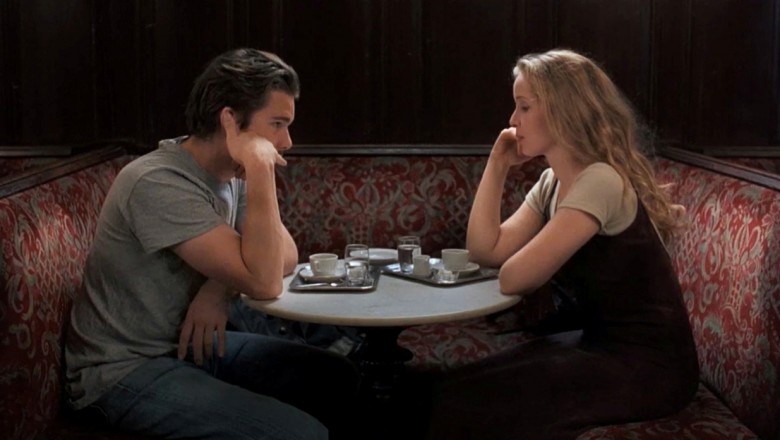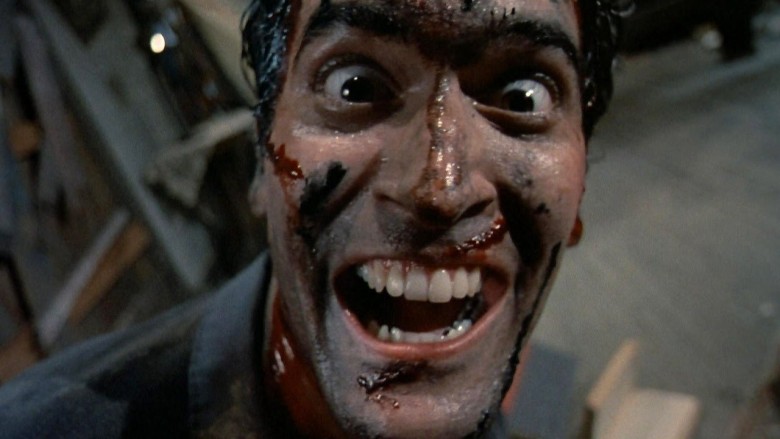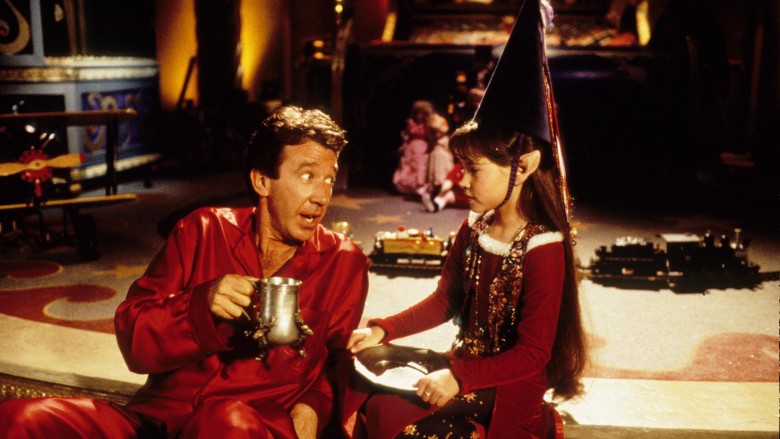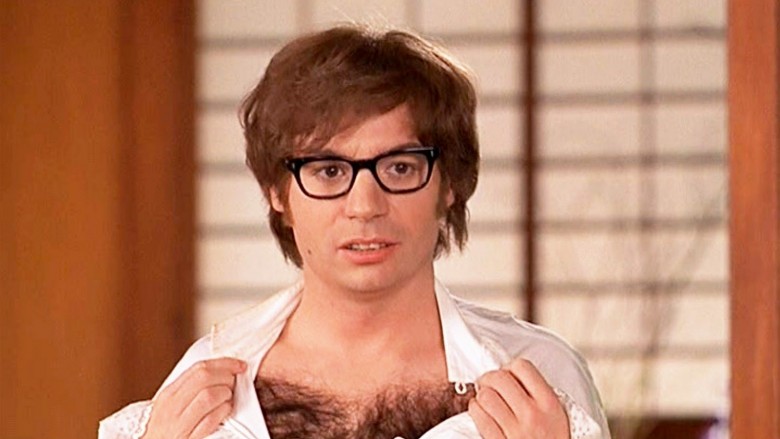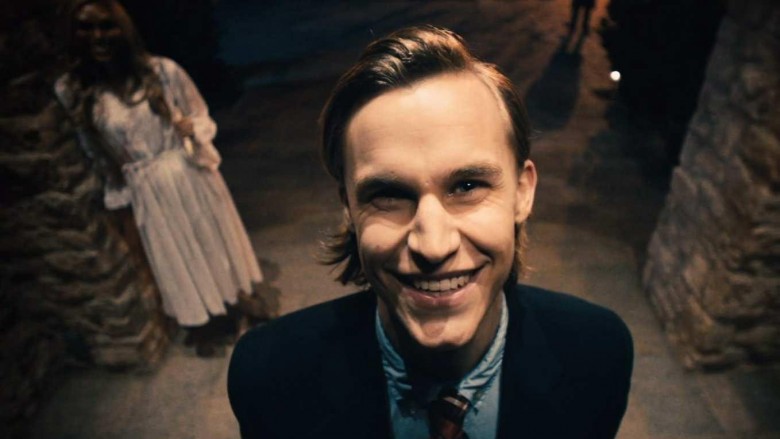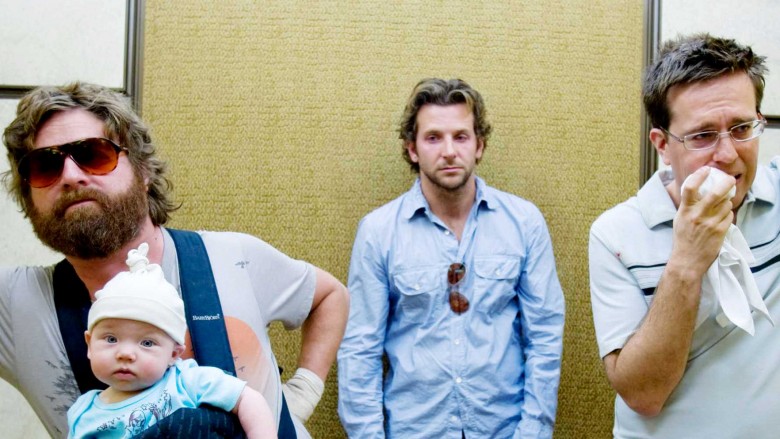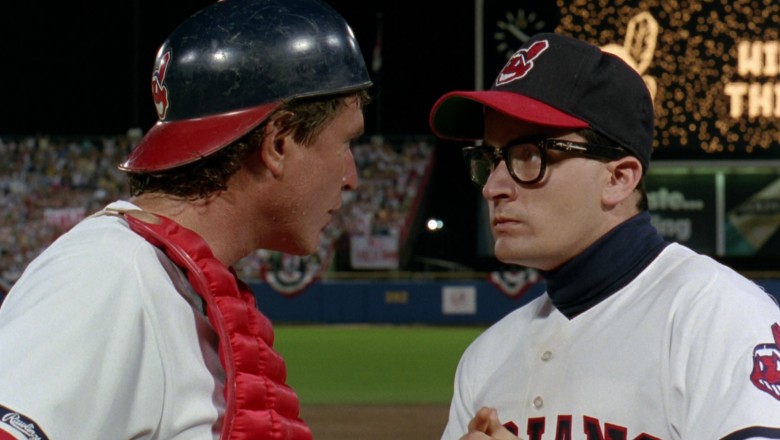Trilogies That Were Originally Supposed To Be Only One Movie
These days, Hollywood seems like a sequel-making machine, with endless reboots, remakes, and franchises galore. But not every cinematic series started out that way. In the case of these trilogies, the original entries were made as standalone movies—it was only thanks to big box office receipts and/or critical favor that they became three-peat properties everyone now thinks of as a set.
Batman Begins
According to writer-director Christopher Nolan, Batman Begins wasn't originally supposed to be the first installment of his eventual The Dark Knight Trilogy. "We never had a specific trajectory," he told crowds at the 2012 Produced By Conference (via Deadline). "I wanted to put everything into making one great film, I didn't want to hold anything back." Indeed, Nolan wasn't a sequel guy before the trilogy, and he hasn't made another one since.
But after Batman Begins was a roaring success with reviewers and made a pretty penny at the box office to boot, Warner Bros. announced the visionary helmer would come back and make The Dark Knight, with the promise that the Caped Crusader would have an epic onscreen showdown with Heather Ledger's Joker ... and, of course, the rest is movie history.
Back to the Future
As much fun as it was to watch Michael J. Fox's Marty McFly skate around the time continuum to the doo-wop generation, into the dystopian Biff-led future, and back into the wild west, Back to the Future wasn't originally intended to be a series starter. Writer-director Robert Zemeckis explained in an oral history with Empire Magazine that when it came to the decision of whether to return to the goldmine for more digging, it was a matter of either hopping on board or getting out of the way.
"We'd never designed the first Back to the Future to have a sequel. The flying car at the end was a joke, a great payoff. We thought this would be really hard to unravel and do again," he said. "But when you make a movie that's as successful as Back to the Future, it becomes this piece of corporate real estate. It becomes bigger than you as a filmmaker. You're basically given a decision: 'We're making a sequel, do you want to be involved in it or not?' So we felt we had to protect our work." Luckily for Zemeckis and co-writer Bob Gale, the sky was in a very literal sense the limit when it came to where they could take the story, so at least they got to have a good time depicting other temporal realities along the way.
Before Sunrise
Richard Linklater claims to often joke that his Before Trilogy—the decades-spanning love story of Jesse (Ethan Hawke) and Celine (Julie Delpy)—includes "the lowest-grossing films to spawn sequels" because they're not prototypical franchise fare. And indeed, the two sequels to the 1994 original weren't planned when Before Sunrise first dropped.
The follow-up films only happened after Linklater and his cast-slash-collaborators felt it was organic to make more movies to follow the story. However, given the cult status of the first film—and the fact that the characters' cameo in Linklater's in-between film Waking Life was so well regarded—the sequels eventually developed into what is now a full-on threequel (until the next nine years pass, at least).
Evil Dead
The Evil Dead has spawned two sequels, a reboot, and a spinoff series, but none of that was intended when the first movie came out in 1981. As star Bruce Campbell once explained, "There was never supposed to be an Evil Dead II. At the end of Evil Dead the Ash character, by all visual accounts, is dead. An evil roaming entity comes to the back of this cabin, crashing through the doors, right up to his face, and he's dead. The credits roll. We make a second movie called Crimewave, written by the Coen Brothers, it dies. So, we were like 'Oh no.' The first Evil Dead was successful, our second movie died ... we were really concerned that we'd go one for three ... so we went 'what if Ash didn't die.'"
That's when they came up with the basis for Evil Dead II—and it was a logistical nightmare, as they didn't own the rights to use footage from the first film in the second movie, so they had to reshoot certain scenes with new cast members to make it work. "There's a big debate over whether Evil Dead II is a sequel or a remake," added Campell. "It's a 're-quel.'" The same licensing rights issue came along when they went back for a third dip with Army of Darkness, but, despite the legal hangups, the end result was an unexpected trilogy.
The Santa Clause
Disney's The Santa Clause was a huge holiday hit. The first installment blew away the box office, thanks in part to the fact that star Tim Allen was a hot property thanks to Home Improvement. Although the film wasn't initially expected to earn a sequel—let alone two — the studio and cast couldn't ignore the profitability of the first film, so Allen agreed to return. As he told the BBC, "We didn't set out to do anything except make that first movie, but what happened was that we handled the Santa Claus myth in such a responsible manner that it seemed plausible to the older kids, and adults could see it too. ... Really it's a story about four adults, set in Santa's world, and what would happen if Santa had to deal with the same problems that most adults go through."
Allen added that the reason he agreed to make The Santa Clause 2 is that it stuck to the basics that made the first movie such a hit. "I had to be convinced it wouldn't just be a sequel," he continued. "I fought this from four years ago because the original was too important a movie to me. It made people happy about the season again. No one had done a good Christmas movie but it's tough to make one that people latch onto, one that isn't silly. This is a comedy but it keeps the character integral to the myth." The Santa Clause 3: The Escape Clause followed a few years after the second, rounding out the trilogy.
Austin Powers
After the success of Austin Powers: International Man of Mystery, New Line Cinema simply had to say "Yeah baby!" to its sequels Austin Powers: The Spy who Shagged Me and Austin Powers in Goldmember—not only was the first installment ultra-quotable, but its domestic receipts tripled the production budget. They had to cough up some serious extra dough before Mike Myers would return for another round of Brit-humored fun, but it was well worth the pay raise; the second film made even more money than the first, and then the third installment one-upped its predecessors yet again. Director Jay Roach, who's called his opportunity to the direct the first film "the break of a lifetime," has indicated that he and Myers are still knocking around the possibility of a fourth, if the right story idea were to ever come along.
The Purge
James DeMonaco's inspiration for his breakout horror film The Purge stemmed from a real-life experience when he got into a car accident with his wife and they were so frustrated with the other driver that she joked they should have one day a year where they're able to retaliate without consequences. He ended up drawing on more ambitious themes, especially as its two politics-heavy sequels The Purge: Anarchy and The Purge: Election Year rolled out in rapid sequence, but he didn't intend to make such a biting statement at the outset. He told Den of Geek that after the first film proved such a massive success—earning $89 million worldwide on a $3 million budget—Universal Pictures quickly ordered up a second installment.
"We made the movie literally from the moment I started thinking about it," explained DeMonaco. "I got the call from Universal, 'Start thinking about part two' after that opening weekend. So it's been one year from thought to outlining to script writing to pre-production to post-production. One year." He admitted he needed to take a break after the second film and said he hadn't yet come up with a plan for the third—even though he guessed they'd ask for one—but his Purge hiatus didn't last long, as movie three came along just two years after the second. There may yet be a fourth installment, although DeMonaco says he won't have anything to do with it, even though he's happily on board for the announced television spinoff series.
The Hangover
Not only was The Hangover not supposed to be a trilogy when it started, some of its stars now wish it hadn't been. The original film did nearly half a billion in international business and earned rave reviews, so it was hardly a surprise Warner Bros. greenlit a followup within months of its release, bringing back its breakout lead actors and director Todd Phillips for The Hangover II.
The co-writers of the first installment, Jon Lucas and Scott Moore, declined the opportunity to revisit their bachelor party brouhaha, with Lucas telling Pajiba, "We felt like that was terrain we'd already covered, and we weren't really interested in repeating ourselves." Looking back, even actor Zach Galifianakis, whose profile skyrocketed thanks to his performance, had regrets that it became a full series instead of staying firm at one film. As he admitted on Marc Maron's WTF Podcast (via ScreenCrush), "Look, that was a good chunk of my life that I do not regret at all, but I wish we had just done one. I think [you should] leave well enough alone sometimes." Hey, he said it, not us.
Major League
Whether or not Major League 3—the working title for what would actually be the fourth installment of the Major League movies, thanks to how much the original creatives and cast loathed the third film—ever happens remains to be seen. As it stands, though, Major League is also an unlikely trilogy that expanded due to the sleeper success of its original. In an oral history of the movie with Sports Illustrated, writer-director David Ward revealed that he felt pressured into returning to the helm for Major League II, which he didn't write, after the first film was successful enough to make the studio push forward with a sequel with or without him.
"I didn't write Major League II. I decided to direct it at the last minute because I couldn't see someone else taking my characters. But it's not as good as the first one," admitted Ward. "It tried too hard to be funny. The third one is a complete mystery to me. I don't even consider that a Major League movie." He's not alone in that, as Wild Thing himself, Charlie Sheen, abstained from joining Major League: Back to the Minors. Whether they like it or not, though, Major League still (for now, at least) lives on as a three-parter.

